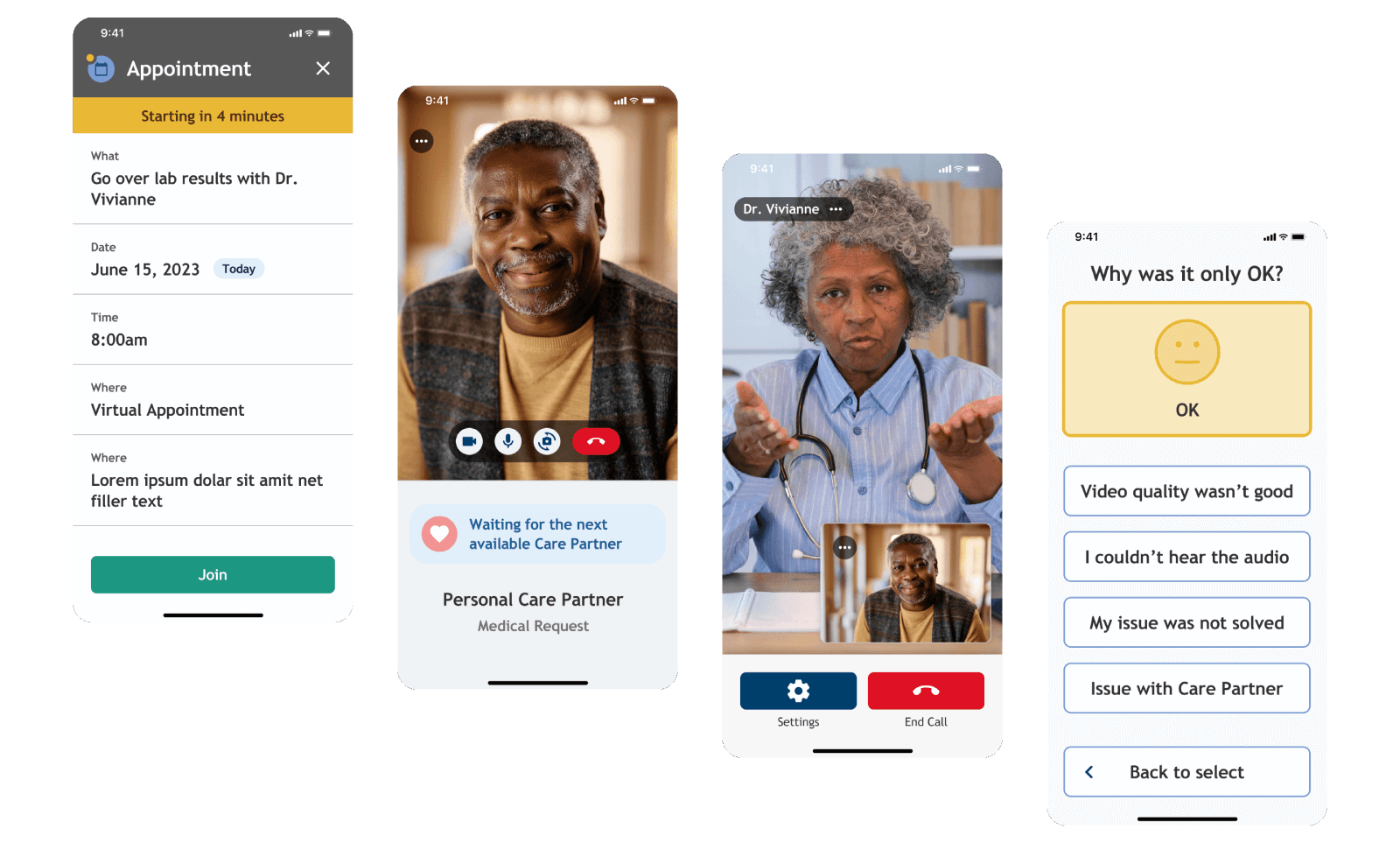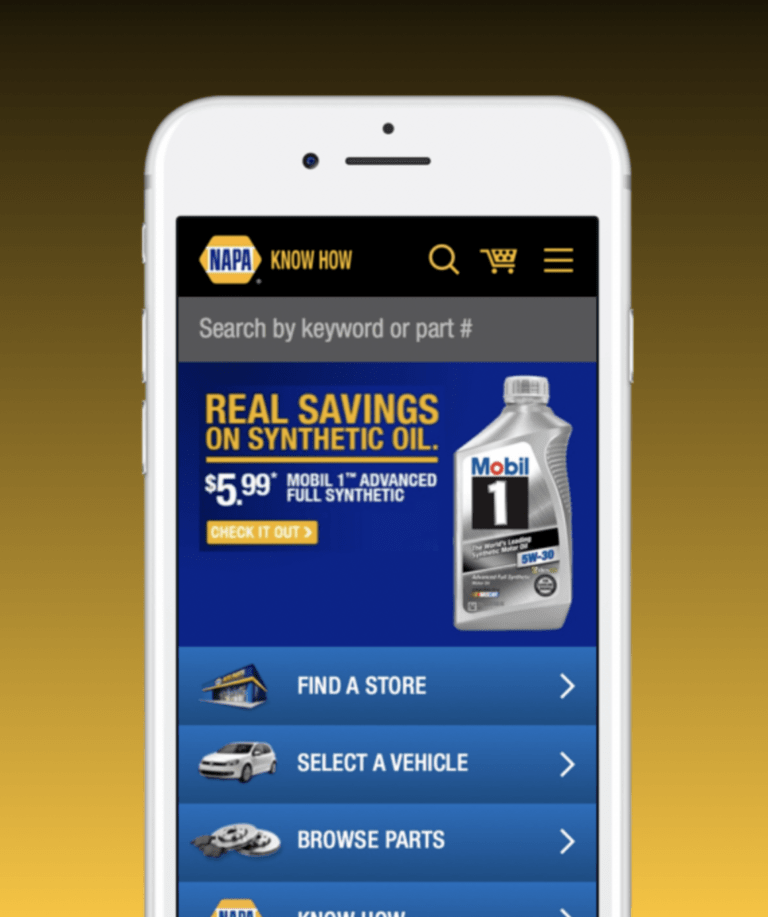Tempo Sales CRM designed and developed in 4 months
Mobile app development
Mobile App Development Services
Mobile is a strategic engagement tool that drives revenue, enhances customer experiences and expands your market presence. Our experienced team transforms complexity into user engagement and utility, driving business success

clients we serve
Key Points for Mobile Projects
01. Product Management
02. Design
03. Development
Mobile App Product Management
App Store Optimization and Distribution Strategy: Develop strategies to launch and maintain visibility in app stores. This includes optimizing app store listings (title, description, keywords), managing reviews, and understanding the nuances of iOS and Android marketplaces. This is crucial for user acquisition and retention in the mobile space.
Mobile-Specific Analytics and User Behavior Tracking: Implementing mobile-specific analytics to understand user behavior, engagement patterns, and app performance. This involves tracking metrics like session lengths, in-app actions, and retention rates unique to mobile app usage.
Feature Prioritization for Mobile Use Cases: Prioritizing features that leverage mobile device capabilities and address mobile-specific use cases. This includes factors like location services, push notifications, and integration with other mobile apps or services.
Mobile App Design
Mobile-First User Experience (UX) Design: Designing with a mobile-first approach, focusing on touch interactions, thumb-friendly navigation, and optimizing user flows for smaller screens. This involves creating a UX tailored to the habits and limitations of mobile devices.
Responsive and Adaptive Design: Ensure the app design is responsive and adapts to various screen sizes and orientations. This is essential in mobile design to provide a consistent and user-friendly experience across all devices, from smartphones to tablets.
Design for Offline Experience: Account for functioning in offline mode or in areas with poor connectivity. This includes designing user interfaces and experiences that remain intuitive and useful even without a constant internet connection, a challenge unique to mobile apps.
Mobile App Development
Cross-Platform Development Tools and Frameworks: Utilizing tools and frameworks that are specific to mobile app development, like React Native, Flutter, or Swift for iOS and Kotlin for Android. These choices impact the app’s performance, look and feel, and the efficiency of the development process.
Optimization for Mobile Performance and Battery Usage: Optimizing the app’s performance in a mobile context, including loading times, data usage, and battery consumption. Mobile apps need to be lightweight and efficient to enhance user experience and device compatibility.
Mobile-Specific Security Measures: Implement security measures tailored to mobile devices, such as secure data storage, correctly handling permissions, and ensuring secure communication over mobile networks. This is particularly crucial in mobile apps due to the personal nature of mobile devices.
Get Started with an MVP
Launch your product faster with a Minimum Viable Product (MVP) designed to validate your ideas, minimize risks, and set the stage for growth. By defining the core use cases and testing a streamlined version of your app, you can gather valuable feedback and make informed decisions before launching production.
Our mobile app development services support you every step of the way, from concept to market launch.
Discovery
Understand the business problem, user needs, and key objectives. Validate the product concept and define the vision.
Product strategy + prioritized features
Blueprint
Define the product or service to solve the problem. Define technical architecture, user flows, wireframes, and visual design.
Project roadmap, technical specs, design assets, prototype
Develop & Launch
Develop the MVP through iterative sprints, incorporating user feedback and testing. Deliver core functionality to meet business goals.
MVP ready for market test & user validation
Grow
Post-launch, focus on scaling and optimizing based on user feedback and analytics. Add users and commercialize the product.
New features, enhancement, business growth
product design examples

Context & explanation of the needs & requirements for the project shown (accessibility, etc).
Our mobile expertise
We are experts in mobile app design and development and have been since 2008. Our team brings extensive expertise in crafting cutting-edge mobile solutions. We are a seasoned team of multi-disciplinary experts who strive to be your partners in development in every sense of the word.
Rapid Time-to-Market
Our mobile application development services are designed and developed with speed in mind, ensuring they can be launched quickly into the market. This agility allows you to capitalize on emerging opportunities and stay ahead of the competition, translating into a faster return on your investment.
Proven Track Record
With 15 years of experience in mobile app development, we’ve consistently delivered projects that boost user engagement, grow revenue, and elevate brand recognition. Mobile is a part of every project. Our track record assures you of a successful outcome.
User-Focused Design
Our approach to mobile app design prioritizes the user’s experience – to ensure user engagement and to deliver utility. We solve the user’s problems.
Why does this matter? A positive user experience boosts retention, builds customer loyalty, and improves business performance.
Security and Compliance
Ensuring the security of your mobile apps and compliance with industry regulations is a top priority. We implement robust security measures to protect user data and maintain compliance with relevant standards like GDPR and HIPAA. This commitment to security safeguards your brand reputation and builds trust among your customers.
Compatibility Across Devices
Our mobile app design and development services are optimized to work on a variety of devices, including smartphones, tablets, smartwatches and OTA devices (e.g. Apple TV). This ensures that your app reaches a broad audience, regardless of the device they use. Consistency in performance and user experience across devices enhances your app’s accessibility and usability.
Multi-Platform Reach
We develop mobile apps that can run on multiple platforms, such as iOS and Android. This approach extends your reach to a wider audience, allowing you to tap into diverse user insights and demographics. A cross-platform app development strategy maximizes your market potential and positions your business for growth across various platforms.
Mobile Use Cases
Telemedicine Platforms
Comprehensive platforms enabling remote medical consultations and healthcare services, integrating features like real-time video conferencing, secure data transmission, and compliance with healthcare regulations.
Field Sales & Service Management
Applications facilitating management of field sales and service operations, encompassing functionalities such as CRM integration, appointment scheduling, transaction processing, and offline capability.
Supply Chain Management
Software solutions for optimizing logistics, inventory tracking, and order management throughout the supply chain, requiring integration with various systems and handling of large volumes of data.
Geolocation Solutions
Applications leveraging location-based services for navigation, tracking, and notifications, addressing challenges related to accurate location tracking, battery optimization, and data privacy.
On-Demand Services
Platforms connecting users with immediate service providers, offering a range of on-demand services such as ride-hailing, food delivery, and home services, with challenges in scalability and real-time data processing.
Marketplace Solutions
Online platforms connecting buyers and sellers, facilitating transactions and product/service listings, with complexities related to user authentication, secure payment processing, and efficient search and filtering functionalities.
Let’s get started
We offer completely customizable mobile app development services that meet the unique needs of customers.
FAQS ABOUT OUR MOBILE APP DEVELOPMENT SERVICES
What are the different types of mobile software?
When someone uses the phrase “mobile software,” they’re typically referring to applications that are designed to run on mobile devices, such as smartphones and tablets. These applications are designed to provide users with various functionalities while taking advantage of the unique features of mobile devices.
There are several terms that people use to refer to mobile applications, including:
- App: This is short for “application” and is the most common term for software on a mobile device. An app could be anything from a game to a business productivity tool.
- Mobile App: This term is used specifically to refer to software that runs on mobile devices. This term helps distinguish these apps from desktop or web applications.
- Smartphone App: This term is often used interchangeably with “mobile app” but more specifically refers to apps that run on smartphones.
- Tablet App: This refers to software designed to run specifically on tablet devices, which often have different interface requirements due to their larger screen size.
- Native App: This refers to apps developed specifically for a particular platform or operating system (like iOS or Android) using the software development tools and languages supported by that platform.
- Hybrid App: Hybrid apps are mobile apps that are developed using web technologies (HTML5, CSS, JavaScript) but are wrapped in a native application shell and can be installed like a native app.
- Progressive Web App (PWA): PWAs are web applications that behave like native apps and can be installed on the device but run in a web browser.
- Mobile Web App: These are web applications that are accessed via a web browser on a mobile device. They often have responsive designs to adapt to different screen sizes.
Each of these terms carries its own implications about the software’s functionality, the platform it runs on, and how it’s developed and distributed.
What is the business opportunity for mobile software?
Mobile apps are examples of modern software with numerous opportunities in both Business To Consumer (B2C) and Business to Business (B2B) use cases.
MOBILE enables:
- Customer Engagement and Accessibility: Mobile apps provide unparalleled accessibility to services and products, fostering a deeper level of engagement with customers. The convenience of having services available 24/7 at their fingertips improves customer satisfaction and loyalty.
- Data-driven Decision Making: Mobile applications can capture an extensive amount of user data in real-time, such as user demographics, behavior, and preferences. This data can be leveraged to generate insights and make informed business decisions.
- Personalization: Mobile applications offer opportunities for personalizing user experiences. Businesses can offer personalized content, offers, recommendations, and communication based on user data, enhancing customer experience and fostering customer loyalty.
- Direct Marketing Channel: Mobile applications serve as a direct marketing channel for businesses, offering a platform to communicate directly with users, send push notifications, and promote products and services.
- Operational Efficiency and Cost Savings: Implementing mobile applications can streamline operations and increase efficiency. Whether it’s reducing paperwork through digital forms, speeding up service delivery, or improving employee communication, mobile apps can deliver substantial operational benefits.
- New Revenue Channels: Mobile apps can open up new revenue channels. Businesses can monetize their apps through in-app advertisements, in-app purchases, subscription services, and more.
- Competitive Advantage: In the digital age, having a mobile application can provide a competitive edge. It signals to customers that a business is committed to providing the best services and experiences. It also enables businesses to keep pace with digital trends and customer expectations.
Overall, the business opportunity of mobile as modern software is immense. It can transform a business’s relationship with its customers, streamline operations, drive revenue growth, and provide a significant competitive advantage.
What skillsets and organization(s) are required to drive mobile software?
Building a successful mobile application that delivers utility to customers and drives business value requires a multi-disciplinary team with varied skill sets and organizational support. Here are some of the essential skill sets and organizational requirements:
- Product Management: Product managers understand the market, the user, and the business strategy. They drive the vision, strategy, and roadmap for the app and work cross-functionally to coordinate development, marketing, sales, and other teams.
- UI/UX Design: Designers play a crucial role in creating intuitive, easy-to-use, and attractive mobile applications that meet user needs. They should have skills in user research, information architecture, interaction design, and visual design.
- Mobile Development: Developers are needed for both front-end and back-end development. They should have experience in iOS and/or Android development and familiarity with languages like Swift, Kotlin, React Native and Java. They should also understand mobile-specific challenges such as performance optimization, battery efficiency, and mobile UI constraints.
- Quality Assurance: QA specialists ensure the application is free of bugs and provides a seamless user experience. They require knowledge in test case creation, automated testing tools, and load testing.
- Data Analysis: Analysts can help track app usage and behavior, identify trends, and provide insights to guide product decisions. Skills in tools like Google Analytics, Firebase, or other mobile analytics tools are necessary.
- DevOps: A DevOps team can help with app deployment, continuous integration and delivery, scalability, and security. Knowledge in cloud computing platforms like AWS, Azure, or Google Cloud is beneficial.
- Security Expertise: Given the sensitive data many apps handle, having team members with expertise in cybersecurity is vital to ensure the app is secure and complies with data protection regulations like HIPAA or GDPR.
- Marketing: Marketing professionals can help drive app adoption and customer engagement through strategies like ASO (App Store Optimization), social media marketing, and content marketing.
On an organizational level, it’s essential to foster a culture of collaboration and communication among these different roles. This can be facilitated through regular meetings, clear documentation, and the use of collaboration tools. It’s also important to provide ongoing training opportunities for team members to stay updated with the latest mobile trends and technologies. Agile methodologies like Scrum or Kanban can help manage the development process effectively and respond quickly to changes or issues.
Lastly, senior leadership support is crucial for aligning the mobile app’s objectives with the overall business strategy and ensuring the necessary resources are allocated for its success.
What are the benefits of working with an experienced partner in mobile software development?
Working with an experienced partner in mobile software development is paramount for achieving product success and aligning with business strategy. Here are the five key benefits:
Technical Expertise & Innovation:
Experienced partners are well-versed with the latest mobile technologies and bring forward innovative solutions. Their cross-industry experience enables them to recommend the optimal solution architecture and technology stack, ensuring your product is scalable and performant.
User-Centered Design & Professional User Research:
An adept partner doesn’t just focus on the backend; they prioritize the end user. By incorporating professional user research, they gather valuable insights into user preferences and pain points. These insights inform the UX/UI design process, ensuring the final product offers a consumer-friendly experience that drives engagement and retention.
Reduced Risk & Enhanced Compliance:
Mobile development presents unique challenges, from security to platform-specific compliance. A seasoned partner, with a history of successful deployments, will have strategies in place to address these concerns, ensuring your mobile application is both secure and compliant.
Time, Cost Efficiency, & Strategy Validation:
Experienced partners, with their established processes, optimize the development cycle, saving both time and money. Additionally, they assist in validating the business and product strategy, ensuring your mobile initiative aligns with market demands.
Continuous Support, Maintenance & Evolution:
The mobile landscape is dynamic. A proficient partner provides not only initial development but also ongoing support, ensuring your application remains functional and relevant. Moreover, as user behaviors evolve, they utilize UX/UI expertise to refine and adapt the application, ensuring it consistently delivers an optimal user experience.
In essence, partnering with a mobile software development firm that combines technical prowess with user research and design expertise ensures your mobile initiative is technically robust, user-focused, and primed for success in the market.
Why trust Digital Scientists with your mobile App initiative?
Choosing to partner with Digital Scientists to develop a new mobile app can provide a range of advantages:
- Expertise and Experience: Digital Scientists has a breadth of experience and expertise across different industries, technologies, and project types. This can offer valuable insights and best practices that an internal team may not possess. The teams at Digital Scientists are consultants and are experienced working with each other and with client partners to get mobile projects completed and launched to market.
- nnovation and Fresh Perspective: We always bring a fresh, outside perspective to a project. Digital Scientists will introduce new ideas or approaches that may not have been considered internally.
- Faster Time-to-Market: Digital Scientists knows how to run fast, and how to integrate with your team to get things done. With our established teams and processes we can deliver a product or service more quickly than building an in-house team from scratch. This can provide a competitive advantage by enabling faster time-to-market.
- Scalability and Flexibility: Resources at Digital Scientists can be scaled up or down based on project requirements, allowing for a more efficient use of your internal product development resources. This flexibility can be particularly valuable in a dynamic environment where needs might change rapidly. Digital Scientists provides an increased capability and capacity to your organization.
- Risk Mitigation: Digital Scientists has managed many complex projects and can help manage and mitigate risks associated with your project. We have established methodologies and processes for project management, quality assurance, and security, reducing the chances of project overruns or technical issues. Digital Scientists provides full and complete transparency for every project sprint to ensure that clients have full knowledge of all work in process.
- Cost Efficiency: Although there are costs associated with hiring Digital Scientists, it can often be more cost-efficient than developing in-house capabilities, especially for one-off projects or when specialized skills are needed on a temporary basis.
Digital Scientists has a track record of establishing long-term mutually beneficial partnerships with our clients. We are prepared to invest in those partnerships to create a relationship established on Trust. We will work hard to demonstrate our expertise, our adherence to quality standards, and our understanding of your specific business needs.








